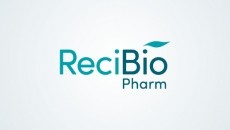Charité and Exscientia collaboration to use AI to advance blood cancer treatment

Under the collaboration announced on Tuesday (March 7) this week, Charité will evaluate the potential of Exscientia’s platform to choose better treatment and improve outcomes for patients.
Every patient’s sample will potentially be looked at alongside a broad panel of marketed drugs, including those that may not be approved for indication yet, to see if there is a comparative response profile.
This collaboration will expand on the results of the EXALT-1 study, which were previously published in the peer reviewed journal Cancer Discovery. EXALT-1 was a first-of-its-kind prospective trial, which demonstrated significantly improved outcomes for late-stage haematological cancer patients. It was run using Exscientia's deep learning-based high content functional drug testing platform to guide personalised treatment recommendations as compared to physician’s choice of treatment.
Ulrich Keller, director medical department, division of haematology and oncology at Charité, said: “Despite major advances in the treatment of haematological cancers, the mortality rate for patients suffering from these conditions remains high.
“Following the results of the EXALT-1 trial, we believe that this new collaboration with Exscientia may present an opportunity to continue exploring how to meaningfully improve therapy selection and patient outcomes.
“Simultaneously, it is imperative that we develop a new generation of therapeutics against unexplored targets and biomarkers to improve patient outcomes, and we believe that our newly established biobank will enable Exscientia to move towards this goal.”
After the trial, Charité said an analysis was published in Blood Cancer Discovery showing that combining this technology with new deep learning advancements leveraging cell-specific features in high-content images had the potential to further improve patient outcomes.
Charité will also establish a biobank of viably cryopreserved blood, bone marrow and lymph node tissues to support further technology development and preclinical research projects at both Exscientia and Charité.
Unlike conventional biobanks that typically contain dead specimens, this will contain live human tissue samples and therefore be instrumental for clinical and translational research.
Andrew Hopkins, founder and CEO of Exscientia, said: “We are really excited to work with Charité to further advance the development and capabilities of our AI-driven functional precision medicine platform.
“Following the success of the EXALT-1 trial, we believe that AI-guided treatment has the potential to significantly improve patient outcomes, as well as healthcare economics, and we look forward to Charité using this approach in a clinical research setting.
"Charité’s work will contribute to Exscientia's growing body of evidence supporting our platform's potential in identifying the right treatment for the right patient. The systematic collection of viable tissue will allow us to further develop the technology as well as advance our clinical and future translational research around novel and better drugs as we seek to modernise the way we guide treatment selection for patients.”












